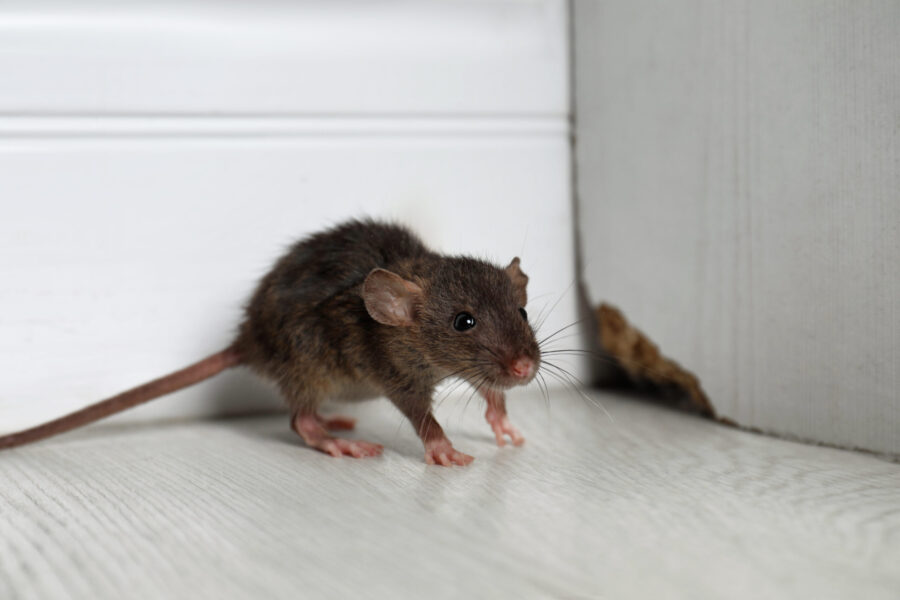In the bustling world of hospitality, maintaining the pristine and hygienic environment expected by guests is a relentless challenge. One of the quiet but persistent threats to achieving this standard is the presence of unwanted pests, particularly rodents. Enter the innovative solution of automated rodent alerts, a game-changer in preserving the sanctity of hospitality spaces.
The deployment of automated rodent alerts in hospitality has revolutionized how establishments manage pest control, offering advanced technologies that monitor, detect, and alert the presence of rodents in real-time. This not only enhances efficiency but also significantly mitigates the risk of infestations that could tarnish the reputation of any hotel or restaurant.

Why Automated Rodent Alerts Matter
From luxury hotels to minimalistic bed-and-breakfast accommodations, the problem of rodent infestations is an unwelcome reality. Rats and mice are not just an aesthetic nuisance; they pose severe health risks, damage structures, and can lead to significant monetary losses. The introduction of automated alerts serves as a proactive method to combat these issues.
These systems employ sensors and data analytics to provide 24/7 monitoring, promptly notifying management about unusual activities suggestive of rodent activity. As an example of how to dispose of mouse glue trap, sites like TrapX Blog offer insights into safe disposal practices post-detection, ensuring comprehensive pest management strategies.
Technological Advancements Driving Change
The technology behind these automated systems is both sophisticated and user-friendly. By integrating AI and IoT (Internet of Things) technologies, these systems provide accurate data which helps in decision-making processes for pest control management. As noted on AI Pest Solutions, these advances provide businesses with the tools needed for efficient and autonomous pest management.
Real-Time Monitoring and Alerts
One of the biggest advantages of using automated systems is the ability for real-time monitoring. This allows for immediate action, potentially saving companies from costly infestations. For example, Eversor highlights how leveraging technology in pest control can drastically reduce operational disruptions in logistics and warehouse departments.
The Economic Impact on Hospitality
The implementation of automated alerts is an investment that pays dividends by preventing infestations before they impact bottom lines. Its estimated that establishments with such systems in place report reduced costs associated with pest management and facility maintenance.
Moreover, adopting such technology is an attractive selling point to customers who prioritize hygiene and safety in their lodging and dining experiences. Information about the commercial viability of using AI in pest control is available through relevant sources such as AI Pest Control in Food.
Enhancing Reputation and Guest Experience
A clean, pest-free environment directly contributes to an enhanced guest experience, which is crucial for the reputation of any hospitality business. Patrons appreciate visible commitment to hygiene, which can be a distinguishing factor in choosing one establishment over another.
Challenges and Considerations
While the benefits are clear, the integration of new technology is not without its challenges. Initial setup costs can be high, and training staff to effectively utilize these tools requires time and investment. However, as detailed by resources like McCloud Services, the long-term benefits often outweigh these initial hurdles.
Ensuring Compliance and Safety
The systems must also comply with regulatory standards to avoid potential legal issues. Such tools need periodic maintenance and updates to stay effective, necessitating a commitment from management to invest in ongoing educational resources for their teams.
Conclusion: A Smart Move for Hospitality
Integrating automated rodent alerts is no longer just an option but a necessity for those in the hospitality industry aiming to maintain the best practices in modern pest control. Embracing such innovation not only safeguards the premises but also boosts the brand image, setting the stage for a resilient and guest-favored business.
For more detailed information on implementing these solutions, you can explore comprehensive guides and professional advice on Rodent Control suitable for your specific type of establishment.

FAQ Section: Understanding Automated Rodent Alerts
1. How do automated rodent alert systems work?
These systems use sensors and data analytics to monitor and identify rodent activity, sending real-time alerts to management for immediate action.
2. Are automated rodent alerts expensive to implement?
While there is an initial investment, the long-term savings from prevented infestations and reduced maintenance costs often justify the expense.
3. Can these systems be used in all types of hospitality environments?
Yes, automated rodent alerts can be customized to fit various environments, from hotels to restaurants and even event venues.
This article contains affiliate links. We may earn a commission at no extra cost to you.

